‘Just hoping it goes up from here’: Freshmen talk starting college in a pandemic
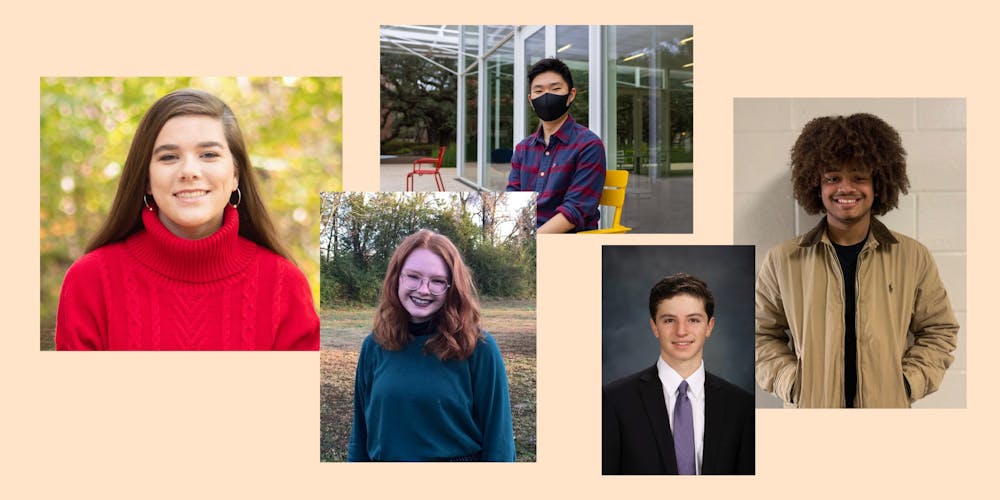
For most of the Rice community, the experience of the fall semester consisted of adjusting to a university that was nothing like it was before the pandemic. However, for freshmen, Rice in the COVID-19 era is all they know. Our newest class of students has navigated through a rather atypical college experience, from being separated from the rest of their college and struggling to connect with their virtual classmates, to being in quarantine through Thanksgiving break and losing family members to the virus. The Thresher checked in with five freshmen, selected at random, to find out how their first semester of college went.
Learning at a distance
Adjusting to academic life at Rice has been challenging across the board for many freshmen. Lily Scholnik, who is planning to double major in bioengineering and Spanish, experienced hardships with having solely virtual classes last semester in an entirely new setting.
“It’s really hard to have everything online,” Scholnik, a Wiess College freshman, said. “At first, I didn’t know anybody, so I was just doing all of my work on my own and it’s really hard to do that. For the most part, I’m still doing everything kind of on my own and it is still kind of a struggle, but I’ve gotten more used to it."
Scholnik, who is originally from Michigan and is living on campus, said she sometimes loses touch with the fact she is at college due to the amount of time she has to spend in her room.
“At first it was really soul-crushing that I would finish all of my online assignments and then new ones would just appear for the next week,” she said. “That just became my schedule — like on Monday this assignment appears and you do it and on Tuesday this one appears and you do it — so it’s a little less soul-crushing now.”
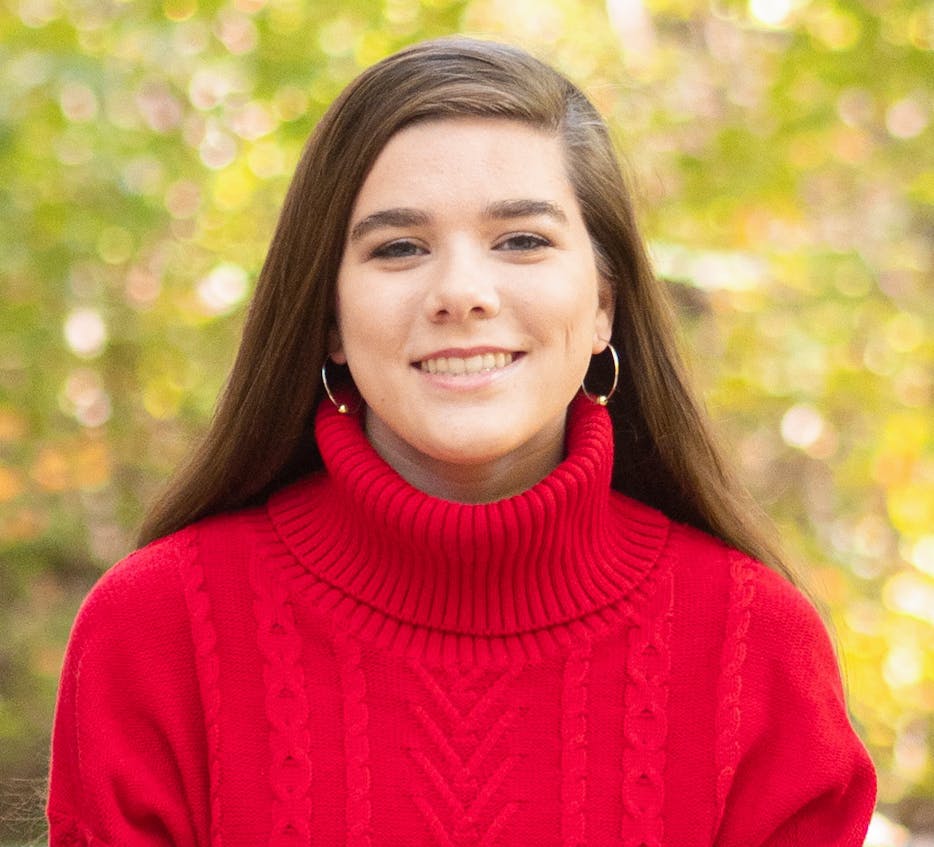
Lily Scholnik, a Wiess College freshman, is planning to double major in bioengineering and Spanish. She found it difficult taking solely virtual classes last semester. (Courtesy Lily Scholnik)
Sumin Yoon, a Sid Richardson College freshman residing at McMurtry College, said he feels as though academics were more stressful than he expected. He found last semester overwhelming due to the shortened nature of it.
“I felt like my academic life was just like this run-on sentence with no breaks, just kept on going, forever and forever,” Yoon said. “Especially the last few weeks, I felt like the professors [were] trying to rush everything in so they can cram everything into the last minute possible.“

Like Scholnik, Yoon experienced difficulty with the virtual nature of some of his classes.
“It’s very difficult to focus on [online classes], especially lecture ones where you don’t really have to turn your camera on, or you’re never incentivized to participate,” Yoon said. “In-person classes [were] definitely my favorite classes [last] semester.”
Hadley Medlock also struggled with virtual learning last semester. While living on campus, she said she finds it especially inconvenient when both she and her roommate are concurrently in discussion-based classes.
“It’s very difficult to learn in online classes in my opinion, just because I feel like there’s so many different distractions,” Medlock, a McMurtry College freshman, said. “Even things like being in your room and just sitting and staring at your computer is pretty hard, like I didn’t expect it to be that difficult.”
Baker College freshman David Palmer, like Scholnik, has all virtual courses and is managing a full schedule.
“Taking 18 credit hours was definitely a choice,” Palmer said. “It [took] a toll on my mental health. Lots of sleepless nights, lots of Bang [energy drinks], lots of coffee. But hey ... got through it, getting through it, will get through it.”
Unlike the rest of the freshmen the Thresher interviewed, Alan Tapper, a Hanszen College freshman, said he didn’t find much of a difference between online and in-person classes.
“I’ve enjoyed my classes,” Tapper said. “I think the Zoom classes totally work, in-person classes work.”
Life outside the (virtual) classroom
In addition to the Jewish affinity groups Rice Hillel and Rice Chabbad, as well as the frisbee club he joined in the fall, Tapper said he primarily socializes in his college’s commons.
“Hanszen generally has commons culture, where people hang out in the commons a lot. It’s just more communal as opposed to localized,” Tapper said. “My friends at Hanszen and other colleges, I feel like we’ve been able to hang out a lot — hang out in the commons and hang out outside, play a lot of ping pong.”
Yoon’s social experience this semester has been affected by the nature of his living situation as a Sidizen.
“It was kind of difficult to get to know other Sidizens in different residential colleges, just because it’s hard to coordinate to meet with them,” Yoon said. “I think it has been getting better with more Sid-wide events that have been happening. But I still don’t really know that many McMurtry people or people in my surrogate college, just because I feel like people just kind of stick to their own residential college.”
Nonetheless, Yoon is heavily involved in New Life Fellowship, a Christian organization on campus that has allowed him to meet other people outside Sid, he said.
Other freshmen credit leadership at their residential colleges for holding events that facilitate their socializing within their colleges.
“I think that my residential college life [at Baker] is relatively nice,” Palmer said. “We [had] our [Friday in the Quad] every Friday. That’s a nice way to meet new people ... Our [resident associates] are really nice and always try to host events for us, same with our magisters.”
Medlock has been hesitant to join some organizations due to their virtual nature, but she was recently hired by Rice Coffeehouse and joined the women’s ultimate frisbee team, Torque. Medlock said that despite her college’s efforts to facilitate socializing, meeting people has still been difficult due to the pandemic.
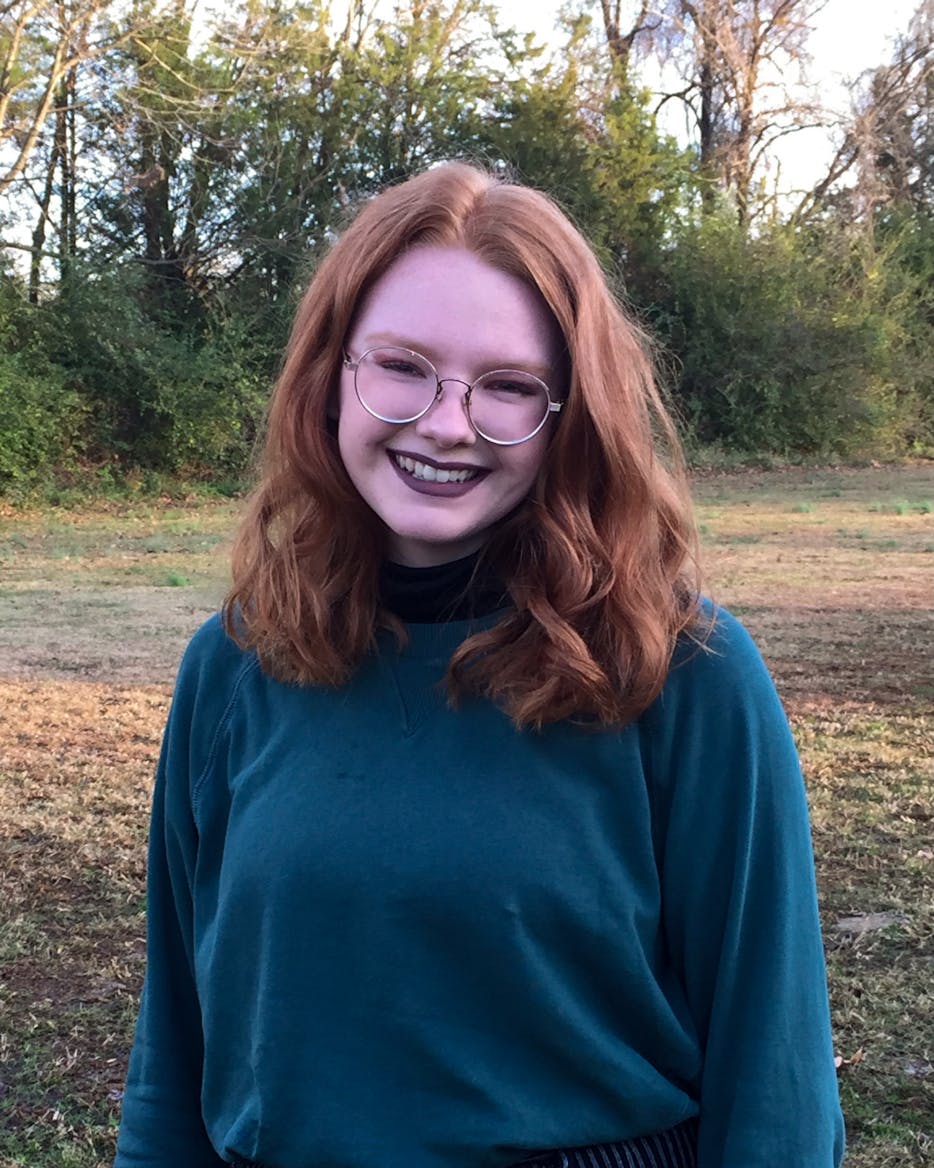
“McMurtry has done very well, still holding events and trying to help us get to know other people,” Medlock said. “It’s still been hard to meet people despite all this. I mean, I don’t have any answers on how to fix that, it’s just something we have to continue to get through for a little bit longer.”
Though he appreciates college events, Yoon believes that their structured nature is not ideal.
“I didn’t know how structured everything would be. Because of the pandemic, you have to register for social events,” Yoon said. “That was really new to me cause I’m not really a structured person — I just go to stuff I want to. The way that I had to plan my entire day or plan my entire week according to the schedule was a little bit difficult.”
Scholnik said she is glad to be on campus in order to meet people, but despite this, she still feels as if she is not fully involved at Rice.
“I don’t really even see life on the university campus even though I'm here physically, which is kind of a weird experience,” she said.
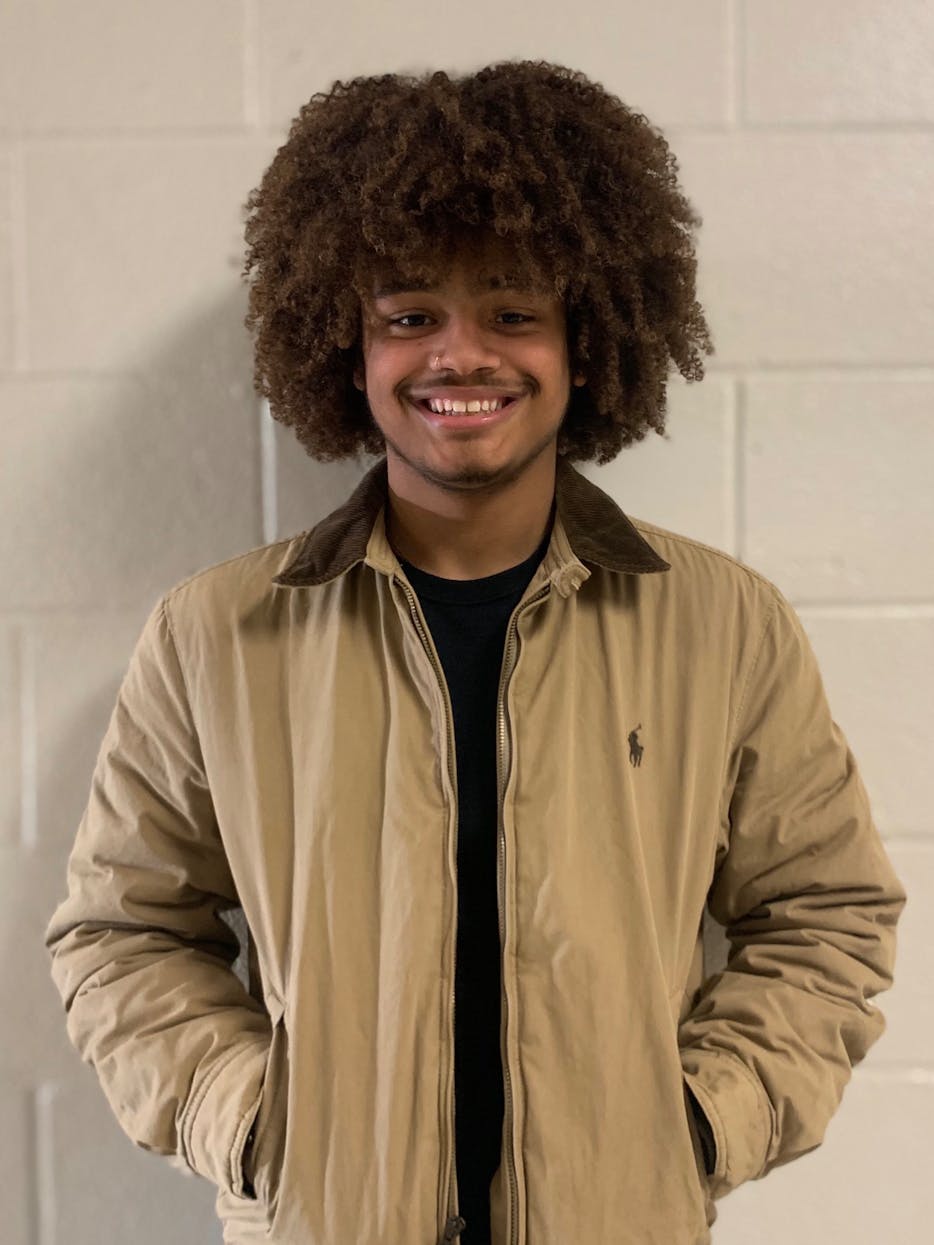
David Palmer, a Baker College freshman, said he appreciated how many events his residential college organized last semester. Most of his friends, though, he met through QuestBridge. (Courtesy David Palmer)
Many freshmen said they felt they lacked the time for heavy extracurricular involvement — Zoom fatigue being a common deterrent.
“This semester has just been kind of hard for me so I’m not super involved in the university,” Scholnik said. “Within Wiess, I go to all the [Wiess-planned] parties and hang out with the people at Wiess pretty frequently, but I’m not in any clubs right now.”
Navigating COVID-19 protocols
Scholnik is glad that Rice has implemented COVID safety guidelines, and said she feels that her college has been strict about social distancing since orientation week.
“My family members have died of COVID. And so, when I hear people complaining about [the COVID rules] or being really upset about the alcohol restrictions or social distancing and talking about how great it was before the pandemic, it’s kind of hurtful to me because this is a really privileged place,” Scholnik said. “I get tested every single week, there is medical care nearby, they are really taking it very seriously at the university level. And so, I feel very safe here and this is not something I would've had access to back home.”
Other students said that COVID-19 restrictions have limited the ways they can meet outside of their residential colleges.
“I think part of this is because all my classes [are] online. But my friends, I don’t really have classes with any of them,” Palmer said. “But I came in [to Rice] through QuestBridge. I made a group chat with them back in February and that’s my main group of friends I hang out with just about every day.”
One of Yoon’s classes is EMSP 281, in which he trains to be a member of the Rice Emergency Medical Services team. He said the class has allowed him to make friends beyond his residential college.
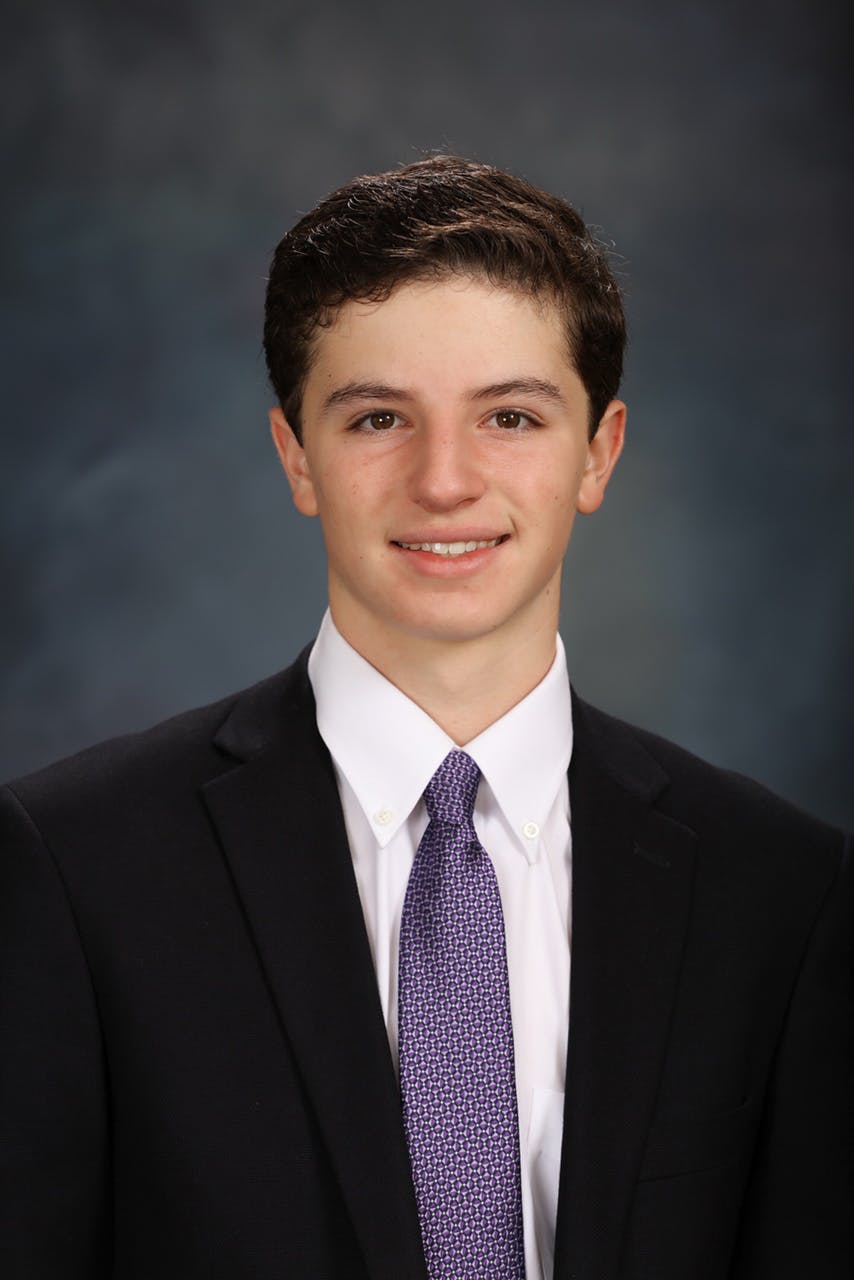
“We got to go to hospitals, train there, do some ambulance shifts, which I thought was really cool. It’s just better than just studying in a textbook and being on Zoom, just doing things with my hands. And I met some really cool people there too.”
Others have had firsthand experience with Rice’s mitigation protocol. Tapper said he spent Thanksgiving on campus in quarantine and had to delay his travel plans. Still, Tapper said he is pleased with his college experience thus far.
“I honestly think [Rice is] pretty close to what I expected,” Tapper said. “More social events have been able to happen than I thought would’ve happened.”
Palmer had no idea what to expect from starting college in a pandemic.
“I wasn’t really sure what to expect. I think Rice has definitely been trying their best considering all the circumstances,” Palmer said. “Just hoping it goes up from here.”
Likewise to Tapper, Scholnik said she has been pleasantly surprised with how Rice has handled the pandemic.
“I wasn’t really sure what to expect from a pandemic. I think I was just really worried that there was going to be massive outbreaks and we would go home immediately,” she said. “I’m really thankful that we made it through to the end, cause I was really afraid to put down roots here thinking that we’d only be here for a little bit.”
More from The Rice Thresher

New student center to ‘complete’ central quad
Breezeways, arches and outdoor seating will abound at the Moody Center Complex for Student Life set to break ground May 8. The 75,000-square-foot complex was designed by architecture firm Olson Kundig and has an expected completion date of fall 2027.

Best study snacks to fuel your finals
Finals are creeping up on us, and that means hunting season for the best study snacks on and off campus. Below are some that are sure to see you through the most enigmatic paper prompts and puzzling practice questions.

Head over handlebars: a brief history of Beer Bike accidents
In the first heat of the women’s race in this year’s Beer Bike, Melissa Geng said she was biking faster than she ever had, adrenaline pumping through her veins. All was going well, until she crashed into the fence of the alumni viewing area at the turn of her second lap.

Please note All comments are eligible for publication by The Rice Thresher.